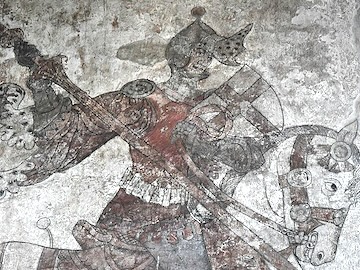English Literacy Inspired by the Vision of NL Clay
Clay Lane is a website for people who care deeply about the language and heritage of the English people, and who want to know more about them because they understand how important these things are for our future. It is inspired by textbooks written by Yorkshire schoolmaster NL Clay, and used in English schools and homes from the 1920s to the 1960s. Clay Lane is ideal for those who prefer traditional methods, traditional content, and the option of one-to-one human contact.
Read famous (and not so famous) passages from history, legend, biography, politics, poetry and fiction, and try your hand at exercises similar to those Clay gave to pupils in secondary schools before the educational changes of the 1960s. Use what you find here to improve your command of good, clear, correctly spelled and punctuated English, or just browse for pleasure.
Everything on Clay Lane is free to use. Share your creativity with me, and if you’d like a little help, just ask. See Email Support.
“The course should train pupils to observe, learn more of the world they live in, think clearly, use the imagination and to speak clearly.”
NL Clay, Think and Speak (1929)
Featured Post
From Character Counts!
“Why do you entrust me with all these goods when you know I am not worth a thousand pounds in my own name?” And the senior member of the great house of Fort, Sons & Company answered, “Mr Cobden, we consider the moral risk more than we do the financial one. Our business has been built up by trusting young, active men of good habits. With us character counts.”
Read
Featured Exercise
Spinners Find in Think and Speak
For each group of words, compose a sentence that uses all three. You can use any form of the word: for example, cat → cats, go → went, or quick → quickly, though neigh → neighbour is stretching it a bit.
The words in this puzzle are taken randomly from a list of 927 common words. You can change e.g. cat → cats, go → went, quick → quickly.
1 Citizen. News. Paper.
2 Decision. Heart. Job.
3 According. Out. Which.
Variations: 1. include direct and indirect speech 2. include one or more of these words: although, because, despite, either/or, if, unless, until, when, whether, which, who 3. use negatives (not, isn’t, neither/nor, never, nobody etc.)












